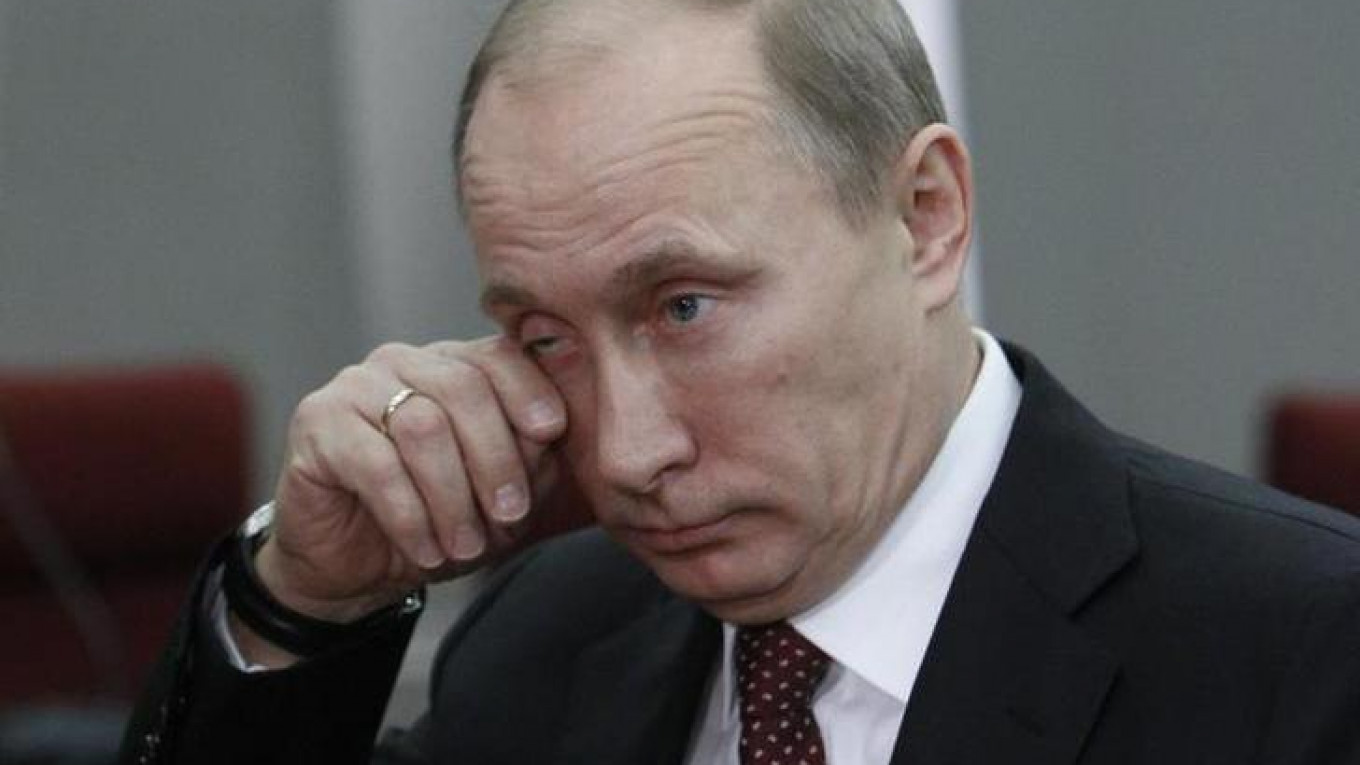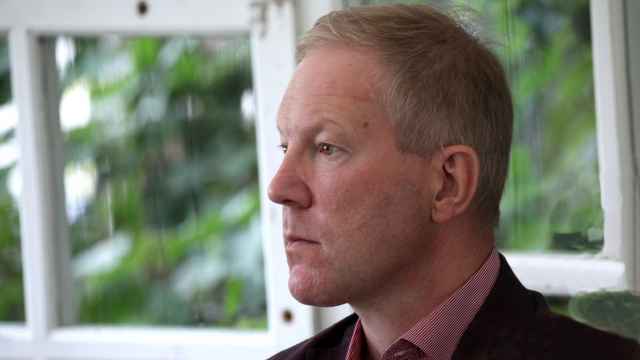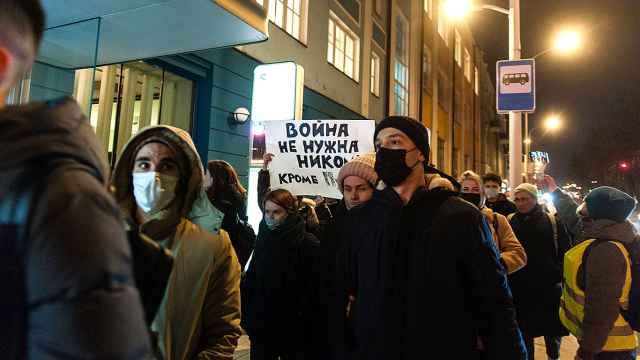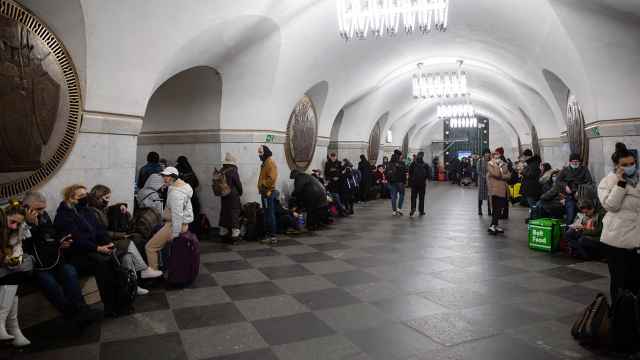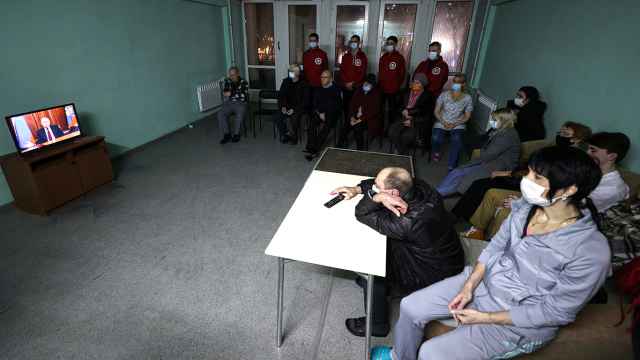Years ago, a journalist asked the president’s office where Putin planned to spend the night while visiting St. Petersburg. In response, officials threatened to cancel her press accreditation.
What offense had she committed? Are the president’s whereabouts a state secret?
Yes and no. Under Russian law, citizens do not have a right to know where the president sleeps or dines — at least in peacetime.
The only time the world knows President Vladimir Putin’s exact whereabouts is when he makes a public appearance that is broadcast live. Otherwise, there is no guarantee.
For example, the Kremlin website reports that the president hosted the Governor of Karelia in the Kremlin on March 11, 2015. In fact, the governor spent the day in his hometown. He actually met with the president a week earlier.
Journalists are familiar with this practice and refer to it as “keeping preserves,” releasing and showing pre-recorded video footage of the president as though the events had only just taken place.
But these preserves do not solve the riddle of the president’s whereabouts.
There are gaps in the president’s work schedule that appear on the Kremlin site. Days when he held no public activities and when his location was unknown.
Obviously, the president is not traveling between worlds — or countries — on those secretive days. If he does not appear in the news and there is no news about him, he is no doubt at one of his official or unofficial residences near St. Petersburg, the Kremlin, Novo-Ogaryovo, Sochi, or elsewhere.
But even when the president is scheduled to appear at public events every minute of the day, it remains a mystery where he spends his nights. If he flies to the Tver region one day, does he spend that evening by the fireplace in Novo-Ogaryovo, fly home to watch from a Kremlin window as the sun sets over the Moscow River, or trek off to watch the sunrise over the Altai Mountains?
Three months before his coronation, in the spring of 1902, the future King Edward VII of England forbade hanging the royal standard on buildings where he was not physically present. He essentially decided that, from that moment forward, the royal standard – the symbol of the empire and its monarch – would indicate the presence of the king.
This was an important gesture. It meant that the king or queen continually performed their duties and, therefore, could not hide their whereabouts from their subjects.
Russia has no law requiring that the presidential standard fly over the building the president occupies. What’s more, the original standard is kept in one of the president’s Kremlin offices and does not signify anything at all.
Of course, the problem is not that Russia lacks a tradition for hoisting an official standard, but that the exercise of supreme authority is understood differently now. The mechanics of governing are hidden from the people.
The authorities make 90 percent of their decisions behind closed doors. Even the location of those doors has gradually, and almost without notice, become a secret in itself.
When a journalist asks, “What did the president discuss?” the response is, “No comment.” And if a reporter dares to ask, “Where did the discussion take place?” they are told: "It's none of your business."
Opposition leader Alexei Navalny recently unleashed a major political scandal when he uncovered a scheme by which the prime minister enjoys the use of wealthy acquaintances’ luxury cottages and villas in return for political favors. This is the result of an unofficial government policy in which leaders are under no obligation to publicly report where they conduct the affairs of state. Any location or property is fair game for private or official business.
The president is not part of the country’s normal life. The authorities have no need to divulge his physical whereabouts.
Some might argue that security is the main concern, that terrorists could target the president if they knew his whereabouts. But his security detail ensures his safety at public events, including outdoor rallies — though Putin has attended only three or four events like this in his 17 years in power. Why, then, can’t the public know where the president is located?
A dictatorship, by definition, produces a nationwide state of emergency that serves as a pretext for leaders to excuse themselves from the rule of law and traditional conduct. According to this logic, the president is not part of the country’s normal life, and therefore the authorities have no need to divulge his physical whereabouts.
As an example, the law on protecting the president reflects state-of-emergency thinking, allowing for extrajudicial seizures, communication blackouts, roadblocks, and intrusions into private homes. Anyone who is the reason for — and the focus of — so many legal abuses cannot help but adopt a siege mentality as well.
The decision to conceal where the Russian president sleeps is itself something of a state crime.
Konstantin Gaaze is an independent journalist and political commentator
A Message from The Moscow Times:
Dear readers,
We are facing unprecedented challenges. Russia's Prosecutor General's Office has designated The Moscow Times as an "undesirable" organization, criminalizing our work and putting our staff at risk of prosecution. This follows our earlier unjust labeling as a "foreign agent."
These actions are direct attempts to silence independent journalism in Russia. The authorities claim our work "discredits the decisions of the Russian leadership." We see things differently: we strive to provide accurate, unbiased reporting on Russia.
We, the journalists of The Moscow Times, refuse to be silenced. But to continue our work, we need your help.
Your support, no matter how small, makes a world of difference. If you can, please support us monthly starting from just $2. It's quick to set up, and every contribution makes a significant impact.
By supporting The Moscow Times, you're defending open, independent journalism in the face of repression. Thank you for standing with us.
Remind me later.



